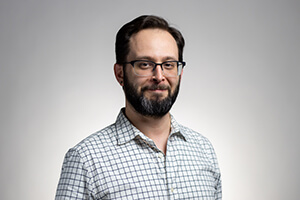
Position:
Department Chair and Associate Professor of Political Science
Location:
Davis Hall, Rm. 203
Phone:
540-665-4561
Email:
mromano@su.edu
Employed Since:
2015
Educational History:
B.A. Political Science, Arizona State University 2002- 2006
Ph.D. Political Science, Western Michigan University 2007 - 2014
Fields of Expertise:
American Politics; Political Institutions; Mass Media & Political Communications; Political Representation; U.S. Congress; Judicial Politics; Democratization
Professional Highlights:
Recent Publications
“Ideological Congruity on State Supreme Courts” with Todd A. Curry (forthcoming, 2018). Justice Systems Journal.: DRAFT.
“Legislators Off Their Leash: Cognitive Shirking and Impending Retirement in the U.S. House”(2018). Social Science Quarterly.: Available here. Supporting information: Supporting Appendix
“Tuning in to Scandal: Television News Coverage of Congressional Scandals” (2014). PS: Political Science and Politics. Vol. 47, No. 2: pg 379-385.: Available Here.
“Michigan: Republican Domination during a Population Exodus” with Todd A. Curry & John A. Clark (2013). In The Political Battle over Congressional Redistricting. Ed. Miller, William and Jeremy D. Walling. New York, NY: Lexington Books.
Romano, Michael K. (2010). “Participation, Deliberation, and ‘Pockets’ of E-Democracy” In Politics, Democracy and E-Government: Participation and Service Delivery. Ed. Chris G. Reddick. Hershey, PA: IGI-Global Publications. pgs. 199-213
Works in Progress
“Influence or Necessity: Language Borrowing on State High Courts” with Todd A. Curry and Richie Romero. Under Review
“The Sentence of Death: Communication and Policy Choice in Death Penalty Decisions on State Supreme Courts” with Todd A. Curry. Under Review.
“Ventriloquism or an Echo Chamber? Measuring the Strength of House Members’ Rhetoric in Local Newspapers” Presented at the 2015 meeting of the Midwest Political Science Association (Chicago, IL).
Personal Quote:We must not confuse dissent with disloyalty. We must remember always that accusation is not proof and that conviction depends upon evidence and due process of law. We will not walk in fear, one of another. We will not be driven by fear into an age of unreason, if we dig deep in our history and our doctrine, and remember that we are not descended from fearful men – not from men who feared to write, to speak, to associate, and to defend causes that were, for the moment, unpopular” – Edward R. Murrow